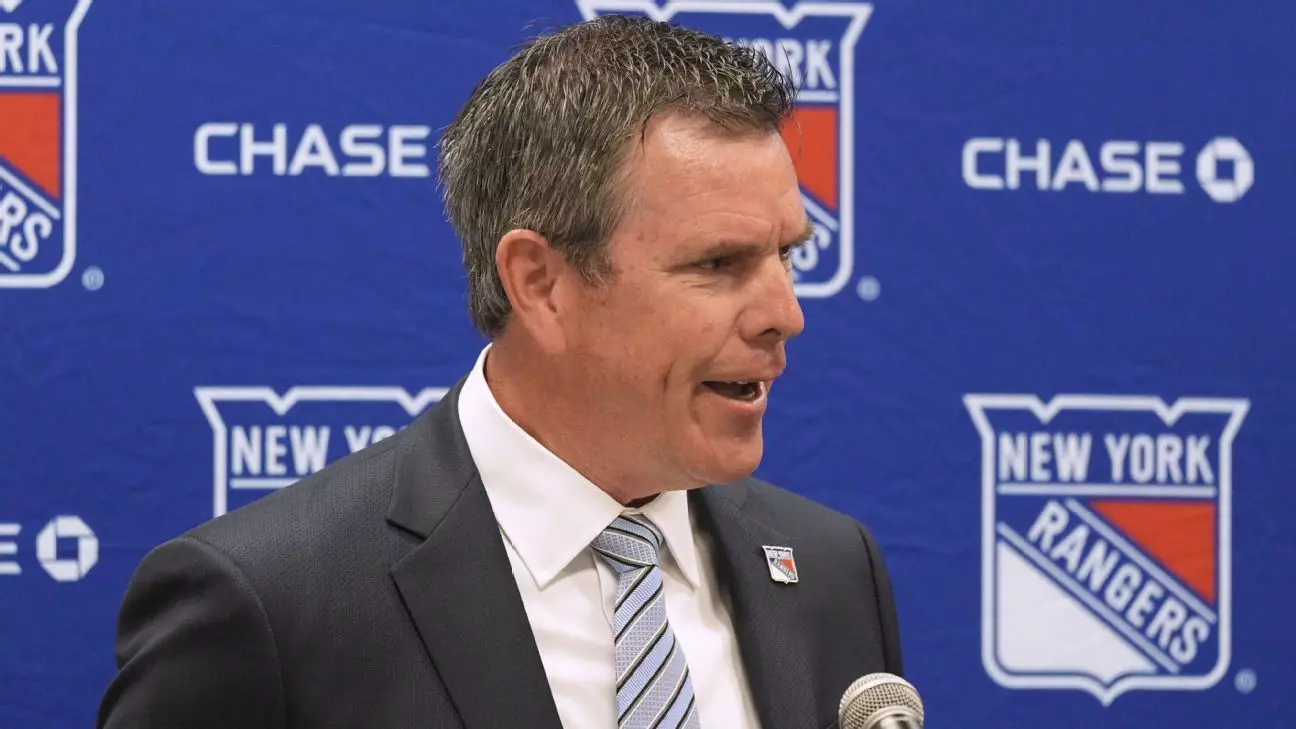Reviving Glory: Mike Sullivan’s Ambitious Journey with the New York Rangers
When Mike Sullivan took on the role of head coach for the New York Rangers, he entered a realm rife with anticipation and high hopes. Just a year ago, the Rangers were flying high, having secured the prestigious Presidents’ Trophy. However, their recent fall from playoff contention was a harsh reminder of how quickly fortunes can change in hockey. Now, Sullivan faces the formidable task of not only halting this downward spiral but also rejuvenating a team desperate for a return to glory. The pressure is immense, casting a shadow over every decision he makes in Madison Square Garden.
Sullivan is no stranger to success, having led the Pittsburgh Penguins to two Stanley Cup victories. However, his new role poses unique challenges as he transitions from coaching to becoming the architect of a competitive team in New York. Open communication with his players will be crucial as he works to establish a shared vision for success. “Communication is key,” Sullivan has emphasized, underscoring his dedication to dialogue as a core element of his coaching approach. It’s this commitment that could prove essential in rebuilding confidence within a squad teetering on the brink of disaster.
Key Takeaways
- Sullivan’s prior success with the Pittsburgh Penguins brings hope to the Rangers.
- Effective communication will be central to Sullivan’s strategy.
- The power play’s improvement is critical for team success.
The Power Play Conundrum
One of the most pressing issues Sullivan must address is revitalizing the team’s power play, which plummeted to 28th in the league last season. This dramatic decline is particularly painful given its previous standing among the top performers. The responsibility for breathing life back into this aspect of the game now rests squarely on Sullivan’s shoulders. Drawing from his experience with stars like Sidney Crosby during his tenure with the Penguins, he aims to unlock the potential of current Rangers talents such as Artemi Panarin and Mika Zibanejad.

Sullivan approaches this challenge with pragmatism, recognizing that successful power plays require more than just strategic plays—they need chemistry and cohesion within the team. “We need to forge an identity that resonates with these players,” he remarked, highlighting his understanding that trust and synergy are just as important as tactical adjustments. Under his guidance, there is hope that last season’s struggles will transform into a formidable offensive force capable of intimidating any opponent.
Developing Young Talent
Beyond rejuvenating the power play or solidifying offensive strategies, nurturing young talent is crucial for long-term success. Players like Gabe Perreault and Brennan Othmann represent the future of the Rangers at just 20 and 22 years old respectively. Sullivan’s approach to developing these young players will significantly influence the team’s trajectory. His meticulous coaching style acknowledges differences between seasoned veterans and young prospects, ensuring that all players earn their opportunities based on merit.
“Every player must earn their opportunity,” Sullivan asserted, promoting a philosophy aimed at fostering a sense of meritocracy. It is crucial that young players aren’t overshadowed by veteran presence but are instead integrated into a system that encourages growth and maturity. Balancing strategic decisions regarding ice time while creating an empowering environment embraces healthy competition without stifling individual potential.
Collaborative Vision for Success
Sullivan’s journey towards reinvigorating the Rangers won’t be traveled alone; it heavily relies on collaboration with team president and general manager Chris Drury. Drury’s commitment to building a competitive team—despite past challenges with undermanned coaching hires—signals a unified effort within the organization to reclaim their respect in the league. This partnership between Sullivan and Drury is characterized by mutual respect built through shared experiences and aims at achieving organizational success.

Their collaboration is set against a demanding fanbase known for unwavering loyalty. Fans expect more than just strategic improvements; they anticipate a revival of pride and tenacity synonymous with Rangers’ storied playoff history. Aligning vision and execution between management and coaching staff becomes essential in navigating scrutiny while confronting competitive challenges ahead.
Final Thoughts
Mike Sullivan’s tenure with the New York Rangers presents both challenges and opportunities as he embarks on this ambitious journey. His ability to communicate effectively, strategize wisely, and nurture talent will be pivotal in shaping this pivotal chapter for both himself and his team. As they stand at crossroads poised between potential triumphs or further setbacks—the fate of New York Rangers hinges not solely upon athletic prowess but also upon leadership acumen displayed by Sullivan through collaboration efforts aligned toward common goals.
Mike Sullivan
New York Rangers
NHL Coaching
Hockey Strategy


Leave a Reply